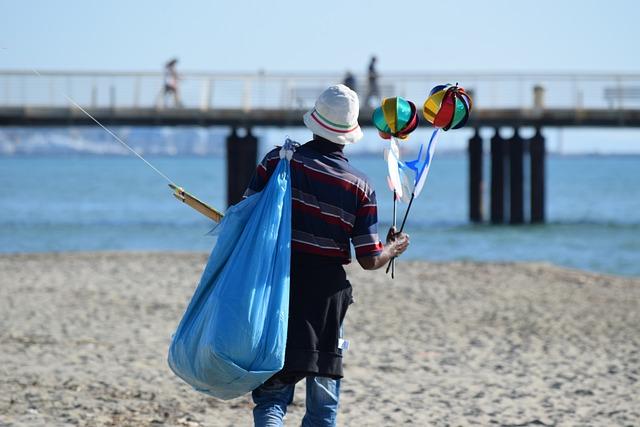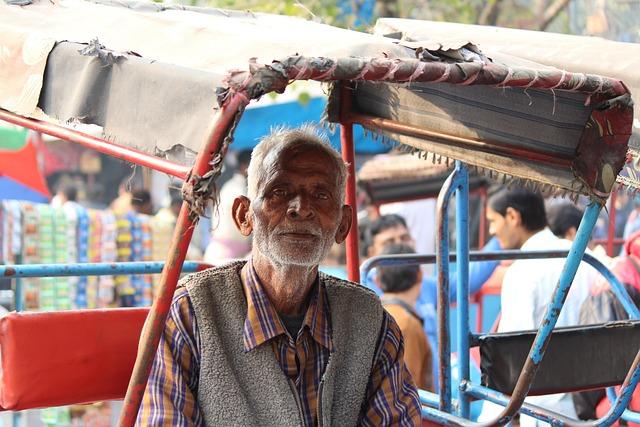In a significant move that underscores the complexities of regional migration dynamics in Southern Africa, the South African government has announced plans to consult on the future of long-term migrants from Zimbabwe and Lesotho. This progress comes amidst ongoing debates surrounding immigration policies and the integration of foreign nationals into South African society. With millions of migrants living and working in South Africa, the consultations aim to address the legal status, rights, and welfare of these individuals, many of whom have established deep roots in their host communities. As the government navigates this pivotal issue, stakeholders from various sectors—including civil society, business, and the affected migrant populations—are poised to engage in discussions that will shape the landscape of regional migration in the years to come. This article delves into the implications of this initiative, examining its potential impact on the lives of migrants and the socio-economic fabric of South africa.
Consultation Process Initiated for Zimbabwean and Lesotho migrants in South africa

In a significant move, the South African government has launched a consultation process aimed at addressing the status of long-term migrants from Zimbabwe and Lesotho. This initiative reflects the administration’s commitment to assess the challenges faced by these communities, many of whom have been residing in South Africa for years under temporary provisions. The engagement will involve multiple stakeholders, including civil society organizations, migrant representatives, and government agencies, all working collaboratively to determine the best pathways for integration or potential repatriation.
The consultation process will focus on several key areas, including:
- Legal Status: Reviewing the residency permits and legal frameworks governing these migrants.
- Employment Opportunities: Understanding the economic contributions of Zimbabwean and Lesotho nationals.
- Social Integration: Examining how these communities can be further integrated into South African society.
| Aspect | Description |
|---|---|
| Migration Challenges | Understanding barriers migrants face in accessing services and rights. |
| Community Feedback | Gathering insights from migrants to shape policies effectively. |
| future Policies | Developing strategies that address the needs of both migrants and host communities. |
Impact of Migrant Status on Families and Communities in South Africa

The status of migrants in South Africa not only influences their individual experiences but also significantly shapes the dynamics of families and communities. Long-term migrants from countries like Zimbabwe and Lesotho often create intricate family structures that span borders, leading to unique challenges. Many have left their families behind while seeking economic opportunities, resulting in emotional strain and fragmentation. This situation can lead to a reliance on remittances sent back home, wich, while beneficial for the families left behind, can create a cycle of dependency and hinder local economic development in their home countries.
In communities,the presence of these migrants can foster diverse cultural interactions,enriching the social fabric of their neighborhoods. However, it can also lead to tensions, notably in areas were resources are already scarce. local residents may feel threatened by the migrants’ adaptation to the economic landscape or perceive them as competitors for jobs and housing. Policymakers face the challenge of balancing the needs of these diverse populations while addressing community concerns. To facilitate better integration and harmony, it is crucial to promote dialog and understanding through various community initiatives.
Key Challenges Faced by Long-Term Migrants in South Africa’s legal Framework

Long-term migrants in South Africa encounter a myriad of challenges within the country’s legal framework, notably influenced by temporary provisions and limited pathways to permanent residency. The predominant issues arise from the lack of a clear and stable immigration policy, resulting in the following difficulties:
- Inconsistent Policies: Frequent changes in immigration laws create uncertainty, making it arduous for migrants to plan their future.
- Legal Status Vulnerability: Many migrants find themselves in limbo, unable to secure necessary documentation, which affects their access to basic services.
- Employment Barriers: Restricted work permits hinder economic stability and growth, leaving migrants reliant on informal employment.
Moreover, the inability to transition to permanent residency exacerbates social integration issues. Long-term migrants face a unique set of obstacles, including:
- Social Stigmatization: Misinformation and prejudice contribute to the marginalization of migrant communities.
- Lack of Legal Depiction: Limited access to legal aid compounds the challenges of navigating the complex immigration system.
- Health Care Access: Migrants often encounter significant barriers to accessing public health services due to their undocumented status.
Potential Policy Options for Addressing Migrant Issues and Ensuring Stability

In addressing the complex issues related to long-term migrants from Zimbabwe and Lesotho, South Africa has several potential policy options to consider. These strategies could focus on promoting stability while ensuring the humane treatment of migrants. Key measures may include:
- Regularization of Status: Establish pathways for migrants to gain legal residency, allowing them to contribute positively to the economy.
- Work Permit Programs: Implement temporary work permits tailored to sectors experiencing labor shortages, thus meeting economic demands while supporting migrants.
- Social Integration Initiatives: Promote community programs that facilitate the integration of migrants into South African society, combating xenophobia and fostering social cohesion.
Furthermore, regional cooperation and dialogue can enhance the sustainability of these policies. Collaborations with neighboring countries can lead to shared responsibilities and resources aimed at addressing the root causes of migration. Possible actions may include:
- Joint Development Projects: launch initiatives targeting economic growth in home countries, alleviating pressure on migration.
- cross-Border Health and Education Agreements: Facilitate access to essential services for migrants, enhancing their quality of life.
- Details Exchange Platforms: Establish channels for sharing data on migration patterns and trends, improving policy responses.
Regional Implications of Migrant Decisions on South Africa and Neighboring Countries

The decision by South Africa to consult regarding the status of long-term migrants from Zimbabwe and Lesotho is poised to have profound regional implications. As one of the most economically developed nations in Southern Africa, South Africa serves as a magnet for migrants seeking better opportunities. The potential policy changes regarding these migrants could lead to a significant shift in migration patterns within the region. Countries like Zimbabwe and Lesotho may face increases in remittance flows if the migrants remain and can secure better livelihoods, but conversely, a large-scale repatriation could exacerbate economic challenges and social unrest in these nations.
Moreover, the situation poses a dilemma for bilateral relations among the countries involved. If South Africa implements stricter immigration policies, neighboring nations may feel the repercussions through an influx of returnees seeking reintegration into their societies. This could lead to increased pressure on economic resources, social services, and infrastructure in these countries. Potential impacts include:
- Heightened tensions due to increased unemployment.
- Strain on healthcare and education systems.
- Possible rise in social tensions as communities grapple with a sudden influx of returnees.
Call for Collaborative Solutions Involving South African and African Union Stakeholders

The ongoing consultations by south Africa regarding the fate of long-term migrants from Zimbabwe and Lesotho underline the urgency for thorough and collaborative solutions. Stakeholders from various sectors, including government officials, non-governmental organizations, and civil society, must unite to address the complex challenges these migrants face. Potential collaborative efforts could focus on:
- Policy Development: Creating amnesty laws or permanent residency options tailored to the unique circumstances of these migrants.
- Economic Integration: Implementing programs that facilitate the economic contribution of migrants within South Africa.
- Healthcare Access: Ensuring migrants have access to health services that protect public health and migrant welfare.
The engagement of the African Union in this dialogue may prove invaluable, facilitating cross-border discussions and aligning regional migration policies. Potential initiatives could include:
| Initiative | Description |
|---|---|
| Regional Dialogue Forums | Creating platforms for South African and neighboring states to converge and discuss migration strategies. |
| Legal Aid Services | providing legal support for migrants to understand their rights and facilitate applications for residency. |
| Community Awareness Campaigns | Educating citizens on the contributions of migrants to foster tolerance and integration within society. |
In Retrospect
the South African government’s decision to consult on the fate of long-term migrants from Zimbabwe and Lesotho marks a significant step in addressing the complexities of migration within the region. The planned consultations reflect a commitment to finding a balanced approach that considers both the rights of migrants and the socio-economic challenges faced by host communities. As discussions unfold, the outcomes will not only impact the lives of thousands of individuals seeking stability and possibility but also resonate across the southern African landscape, influencing future migration policies and regional cooperation. Stakeholders,including policymakers,human rights advocates,and community leaders,will closely monitor the process,hoping for solutions that promote dignity and integration while fostering social cohesion within South Africa. The coming weeks will be pivotal in shaping the future of these long-term residents and the broader narratives of migration in the region.







